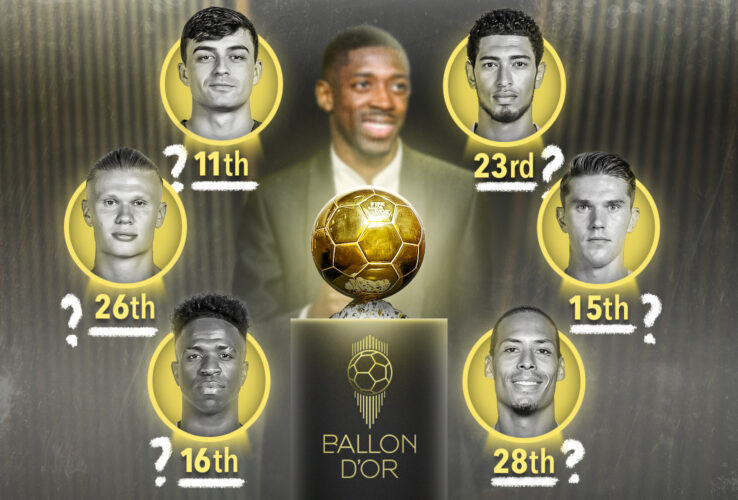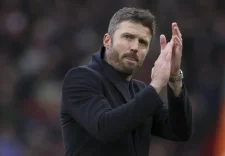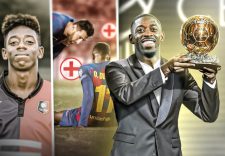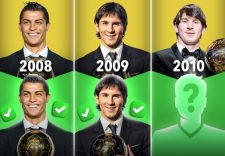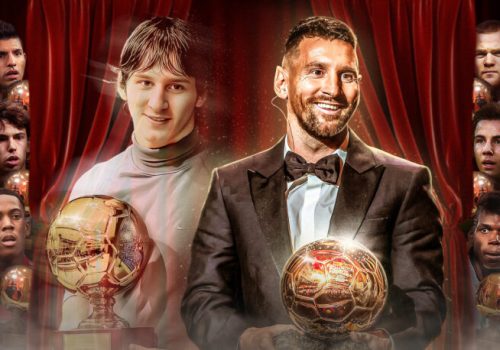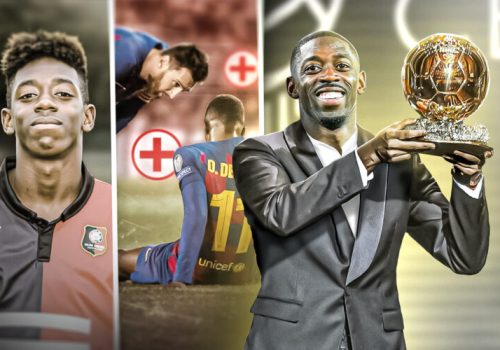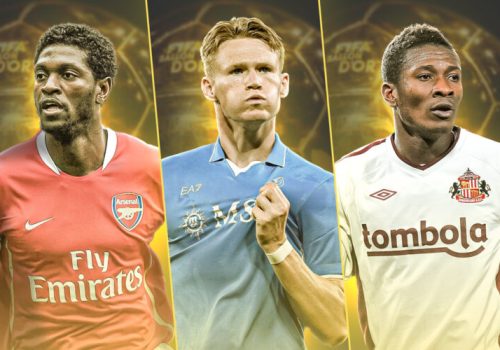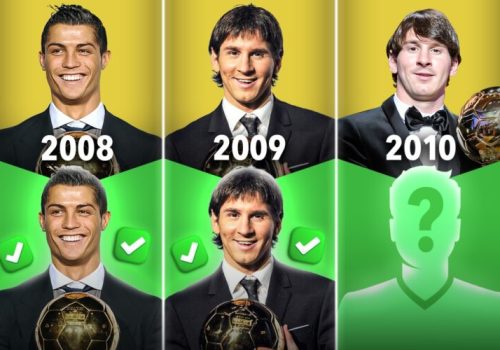The Ballon d’Or voting criteria has become a shambles.
Trophies decide everything. Individual ability counts for very little.
Take nothing away from Ousmane Dembélé – 35 goals, 14 assists and a treble for PSG that included the elusive Champions League – he was the favourite for a reason.
But look further down the list.
The world’s best goalkeeper – 9th.
The world’s best defender – 28th.
The world’s best midfielder – 11th.
The world’s best striker – 7th.
The Ballon d’Or is awarded based on three main criteria:
- Individual performances, decisive and impressive character
- Team performances and achievements
- Class and fair play
It is clear that one of those factors carries significantly more weight than the others.
It is time for change.
The case for Dembélé
Using the stated criteria:
1) Individual performances, decisive and impressive character
Of Ballon d’Or winners, only Ronaldo, Messi and Benzema have ever had more goals and assists than Ousmane Dembélé – and he isn’t even PSG’s main penalty taker.
He also delivered when it mattered the most: 2 assists in the Champions League final, a goal and assist against Arsenal in the semi-finals and the decisive goal against Liverpool.
Dembélé’s game is far more than just statistics; the French winger passes the all-important ‘eye test’. One of football’s truly two-footed players, Dembélé’s electric pace, agility and close control always make for entertaining viewing.
In terms of character, Ousmane Dembélé has shown an impressive resilience to bounce back from once being labelled the ‘enfant terrible’ of French football. His €148m move to Barcelona was an unmitigated disaster, failing to live up to expectations on the pitch and accused of having a poor attitude off it.
Even after his move to PSG, he was dropped for PSG’s Champions League group stage game against Arsenal, with Luis Enrique accusing him of “not respecting” his team-mates.
Whatever stern words Enrique had, they worked. From that moment, Dembélé’s role changed. Rather than an explosive winger often on the periphery of games, Enrique deployed him through the middle and utilised his pace to become a menace in applying the high press. Whilst his pace, stamina and agility give Dembélé all the tools to press, it is his impressive commitment to putting a shift in for his team that is his biggest asset in defending from the front.
Overall, a worthy winner on this part of the criteria.
2) Team performances and achievements
PSG won Ligue 1, Coupe de France and the Champions League – no debate here.
3) Class and fair play
Dembélé did receive a one-game ban in November for accumulating too many yellow cards, but his discipline and attitude significantly improved as the season progressed. Even during his ‘worst’, his on-pitch discipline was never bad enough to outweigh the other positives.
Using the official Ballon d’Or criteria, Ousmane Dembélé was the obvious choice for the top prize.
But is the criteria still fit for purpose?
The rest of the rankings show the weaknesses of the current voting system.
Pedri – by far the best midfielder in the world last season – placed 11th. Vitinha finished 3rd, having been an instrumental part of the best midfield three of last season alongside Joao Neves (19th) and Fabian Ruiz (24th).
But is Vitinha a better player than Pedri? No.
Kylian Mbappé is the best player in the world. Ancelotti struggled to find the right system to best utilise the Frenchman, a major contributing factor towards a disappointing season for Real. But 7th? Mbappé still scored 44 goals in his debut season for a disjointed team. Why has Mbappé been penalised with a low ranking because his team struggled around him?
Erling Haaland placed 26th. 2024/25 was not a good season for Manchester City, and the Norwegian was quieter than in previous years. But not even the most ardent Arsenal, Sporting or Sweden fan would take Viktor Gyökeres (15th) over Haaland, even off the back of last season. On the topic of Swedish strikers, Isak wasn’t even nominated.
The importance of trophies can be seen clearly by Cole Palmer’s 8th placement. If Chelsea hadn’t pulled off a shock Club World Cup victory, the Englishman would have been nowhere near a top-ten finish. In the latter half of the 2024/25 season, he scored just two goals from open play in the league. Two goals against PSG in the Club World Cup final overshadowed a prolonged quiet period for Palmer.
Virgil van Dijk was at his imperious best, yet only placed 28th. Liverpool won the title at a canter, but because they were unlucky enough to face PSG early in the Champions League, van Dijk was overlooked for a higher ranking.
What needs to change?
Football is defined by different opinions. There will never be a universally agreed definition of what it is to be world class, let alone an award for the best player. But the rankings need to prioritise individual performance at least as equally important, if not more important, than collective trophies.
But for now, let’s celebrate Ousmane Dembélé – a deserved winner.



